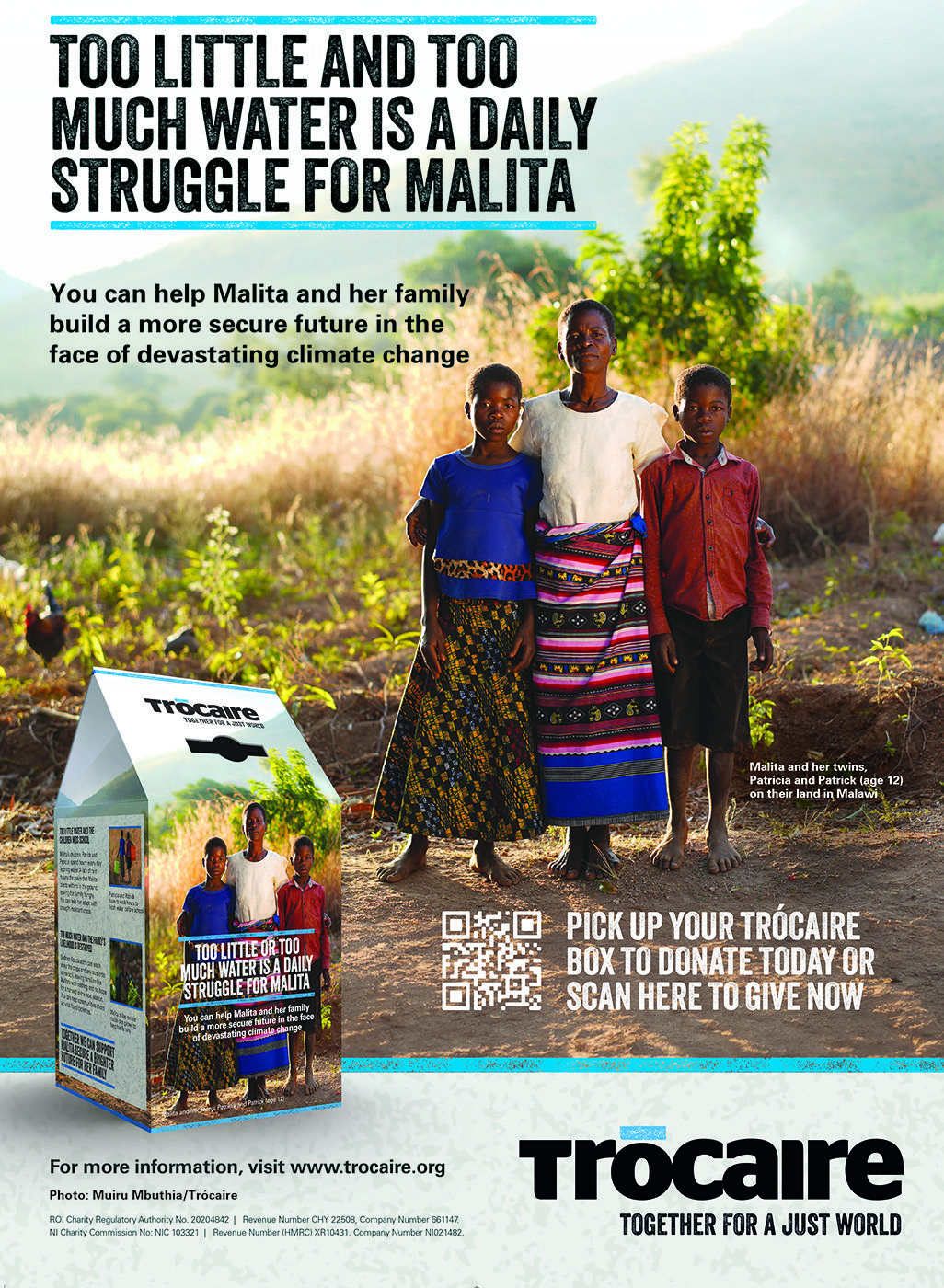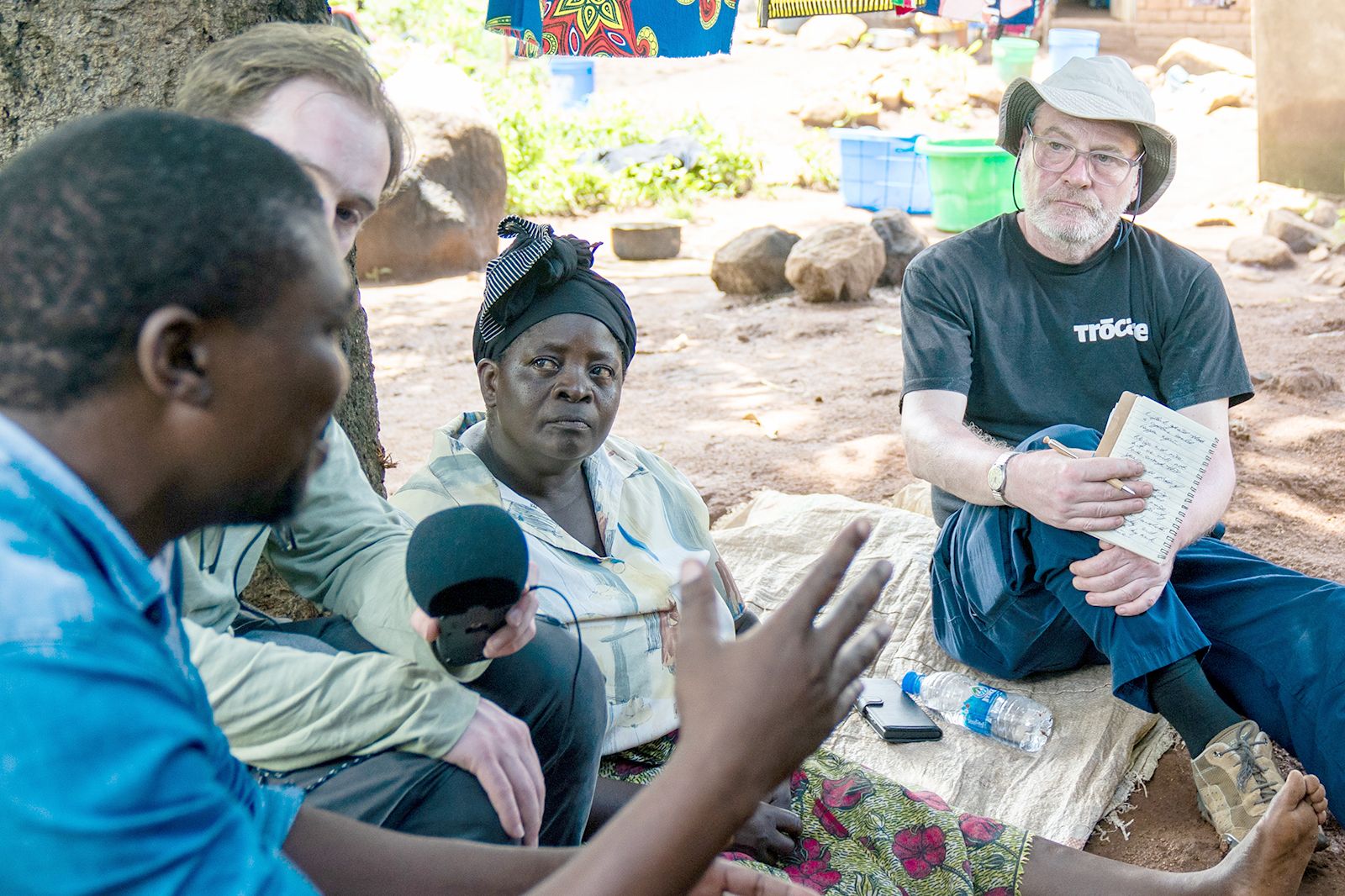David O’Hare who works for Trócaire has recently returned from the southern African country where he saw the devastating impacts of climate change…
TWO weeks ago I visited Malawi which is the focus of this year’s Trócaire Lenten Appeal. It was not my first visit to the country. I travelled there last year to hear first-hand how the people who have done least to cause climate change are suffering most from its effects. One of the poorest countries in the world, Malawi is also one that is suffering the consequences of climate change most acutely.
On my last visit I heard how the problem was water – either too much or too little. Farmers told me that the number of cyclones and floods have increased and droughts are now more prolonged and severe. The upshot is the same. Crops either wither and die in the ground during the droughts or are washed away in the floods and families can’t harvest enough to feed themselves. This is quite apart from the death and destruction caused by the increasingly frequent cyclones. Last March Cyclone Freddy cut a swathe of destruction through the country killed over 1,000 people and destroying 110,000 homes.
And it’s not just the crops that suffer during times of drought. Water sources, often kilometres away from homes, that people depend on to drink, cook and wash become dry. Malita is the single mother on this year’s Trócaire Box and she walks to collect water up to five times a day – a round trip each time of one hour. During times of drought she has to travel even further. Her 12-year-old twins Patricia and Patrick, who are pictured on the Box with their mum, often help collect water too and as a result miss school or arrive so exhausted that they cannot concentrate in class.
This is the very real impact of climate change.
📣 Calling all teachers and youth leaders!
— Trócaire (@trocaire) March 21, 2024
Tomorrow is World Water Day - need resources?
Here is a short video to help explain water justice around the world to young people.
💧More water resources available here: https://t.co/WxIKrNPuic pic.twitter.com/otb8yFORkS
I was hoping that the situation in Malawi would have improved on my recent visit. However the farmers I spoke to told me that a prolonged dry spell in February had spelt disaster for the maize harvest – the staple crop in Malawi. I witnessed field after field of dead crops and these were what people were relying on to feed their families. The people of Malawi are used to having to deal with ‘hungry months’ where the depleted harvests run out and to get through to the next harvest people have to look at other ways to feed themselves. Ironically one of these ‘coping mechanisms’ is cutting down trees to make charcoal to sell which increases the vulnerability of the land during the floods. Malita told me, “I know cutting down the trees is bad for the environment but I have no other way of getting food for my children.” The ‘hungry months’ in the past usually start around November until the next harvest in April. It is feared this year that the food shortages could start as early as May and as a consequence 4.5 million people, over 20 per cent of the entire population, could face hunger.
But it doesn’t have to be this way. Even though the situation I witnessed in Malawi was gravely concerning there was hope amidst the challenges. I saw amazing projects implemented by our partners on the ground and funded by donations from people here at home – projects that are quite literally changing lives.
I saw reforestation work in the villages where native trees are replanted to return protection to the soil in the face of the floods. I saw agro-ecology projects where farmers are taught about the different crops they can grow so they aren’t solely dependent on maize. This approach utilises varieties of crops and vegetables that are naturally resistant to drought and the holistic approach taken means families have something to harvest all year round. This not only provides sustenance but increased nutritional goodness for children. I heard about the plans to pipe water from the source on the mountain close to Malita’s village down to close to the homes to remove the backbreaking chore of carrying the water long distances.
This is what I love about my job – seeing the difference even small interventions can make to people’s lives and witnessing the quiet dignity, strength and resilience that people exhibit as they strive to make life better for their families is very humbling and inspiring.
The donations to this year’s Lenten Appeal will continue to support the people we work with in Malawi and right across the world going forward and I can’t stress how important these donations are as parents should not have to wonder where they will get the food to feed their families and children shouldn’t have to go to bed hungry.
To find out more about the Trócaire Lenten Appeal or to make a donation visit www.trocaire.org






